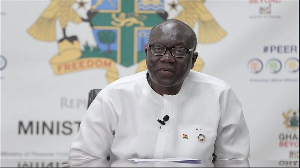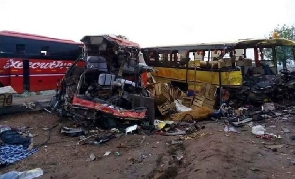A panel of five judges in Malawi has begun to read its ruling following an appeal challenging the results of last May's presidential election.
President Peter Mutharika won a second term with 38.6% of the vote.
But opposition candidates Lazarus Chakwera, who came second, and Saulos Chilima, who finished third, went to court to argue that the election was not fair.
They say the way the election was handled was full of irregularities.
The judges, who arrived in court in the capital, Lilongwe, under military escort, are expected to read out a summary of their 500-page decision, according to the local Nation newspaper.
Frame 3: President Peter Mutharika's lawyers arrive at the court.
— NationOnline (@NationOnlineMw) February 3, 2020
Frame 4: Lawyers and members of the public stand on a queue for security before they are allowed entry into the court. pic.twitter.com/TYSh5lIMIc
According to the official results Mr Chakwera, who claims he won the election, garnered 35.4% of the vote as the flag bearer for the Malawi Congress Party.
Mr Chilima, a former ally of the president, got 20.2%. He was the candidate for the UTM.
There is a high level of anxiety in the country following months of tense clashes between the police and opposition supporters.
Many schools have been closed and some public transport had been suspended ahead of Monday's court decision.
What were the allegations? The losing candidates alleged that the electoral process, especially the way the results were handled, was full of irregularities.
In court, their lawyers said that correction fluid - known locally by the brand name Tipp-Ex - had been used on some of the tallying forms sent in by polling stations.
The changes were made after they had been signed by party agents, they said.
The opposition alleges that there were irregularities at the polling centres where the votes were counted The lawyers also said that in some cases polling officials sent in the wrong copy of the results sheet to the main tallying centre.
They also found some mathematical errors in a small number of cases.
Though in each case there were not a huge number of errors, the lawyers said that the evidence pointed to a flawed process.
What was the response? In court, the Malawi Electoral Commission (MEC) defended its handling of the vote as being in keeping with the law.
It said that on the few forms where correction fluid had been found, it had not been used to change a result, but to alter procedural information that had been incorrectly entered.
The commission said it had not supplied the Tipp-Ex.
Malawi's 2019 election Official results
158,969
Winning vote margin
38.6%Peter Mutharika
35.4%Lazarus Chakwera
20.2%Saulos Chilima
Source: Malawi Electoral Commission
The MEC's lawyers also argued that while the wrong copy of the results sheet had been submitted in some cases, that copy had been signed off by party agents and the tally itself was correct.
Outside the court proceedings, backers of Mr Mutharika's Democratic Progressive Party often mentioned reports of international observers, which were largely favourable, as evidence that he won the vote fairly.
How interested have Malawians been in the case? The court proceedings, which lasted more than three months, were keenly followed.
Four radio stations broadcast the sessions live and on public transport passengers sometimes demanded that the radio be switched on so they could follow what was happening.
Groups of people gathered round radio sets to hear the latest from the court.
Why is it such a big deal?
The level of anger is unprecedented here.
Since the disputed results were announced last May, there have been regular anti-government protests. Some of these have resulted in looting and the destruction of property, including government offices.
Two people - one police officer and one civilian - are known to have been killed during the demonstrations.
A human rights group held a rally in the capital after allegations were made that someone had attempted to bribe the judges Malawi's Human Rights Commission said that in October, during a security crackdown following a protest, police officers raped and sexually assaulted women, some of them in the presence of their children.
Just a few days ago, the country's anti-corruption body arrested a top businessman on allegations that he attempted to bribe the five judges hearing the case.
He allegedly wanted the judges to decide in favour of the respondents, Peter Mutharika and the Malawi Electoral Commission.
The businessman was reported to the anti-corruption agency by the chief justice.
The situation has not been helped by the fact that the police is not seen as neutral or professional. For the most part, it has been the military which has been going onto the streets to help bring order.
What will happen after the court rules? The court can rule by a majority decision and it is not clear which way the judges will go.
Opposition supporters have taken encouragement from the 2017 Kenyan court decision to annul the presidential election there.
But if the court does not cancel the result there is the fear of more violence.
The government, the security forces, church organisations and diplomats have all issued statements pleading for calm.
Both Mr Chakwera and Mr Chilima have urged Malawians to respect the court verdict.
As the judgement is being delivered many people are planning to stay indoors, but the main parties are expected to bus supporters into the main urban centres for celebrations.













